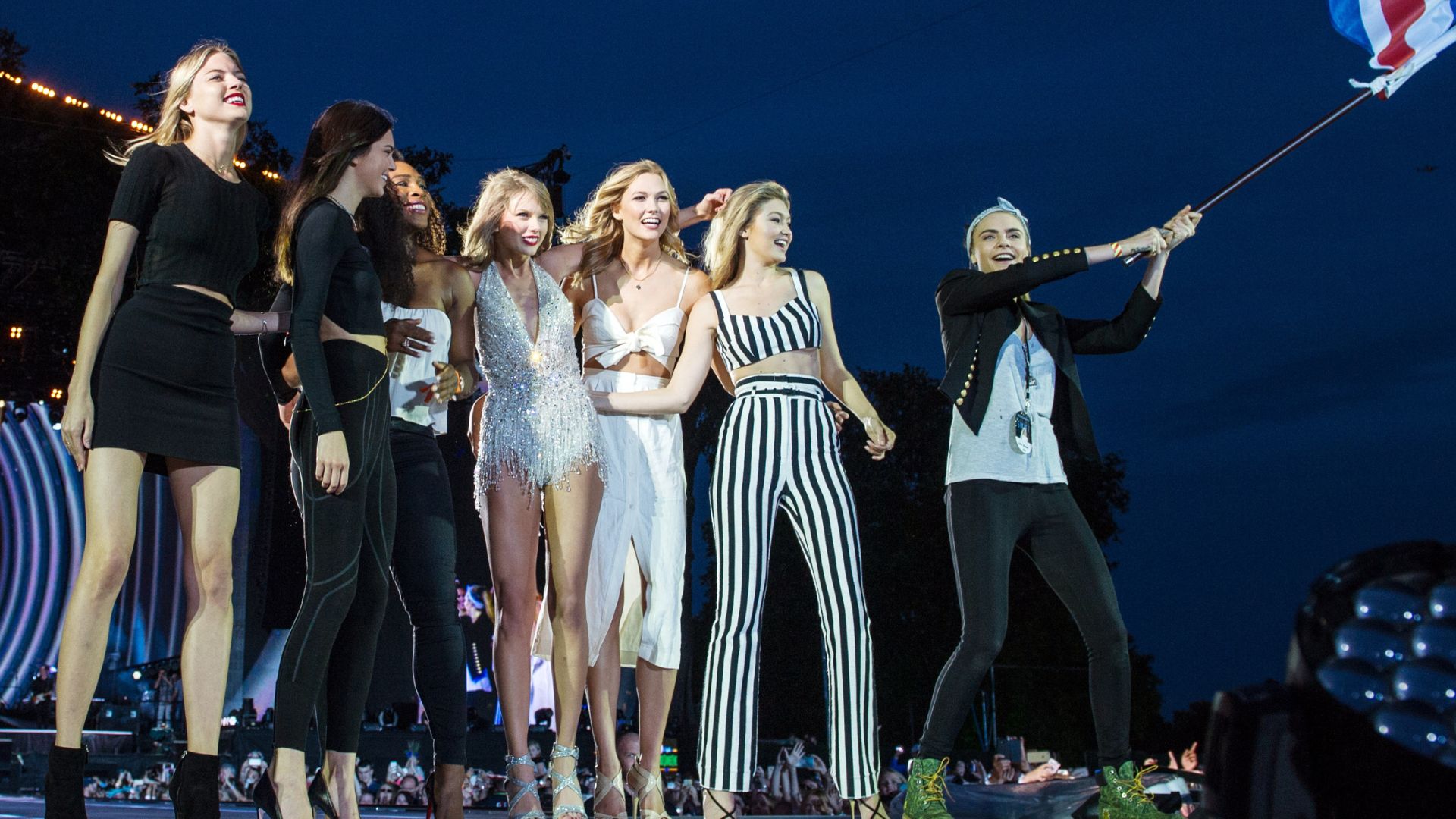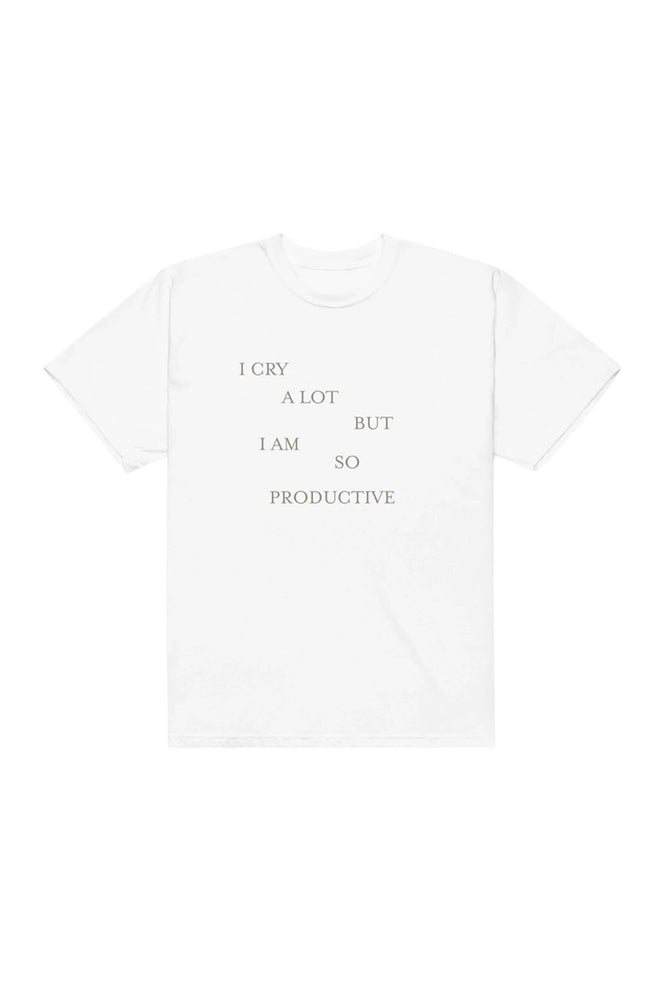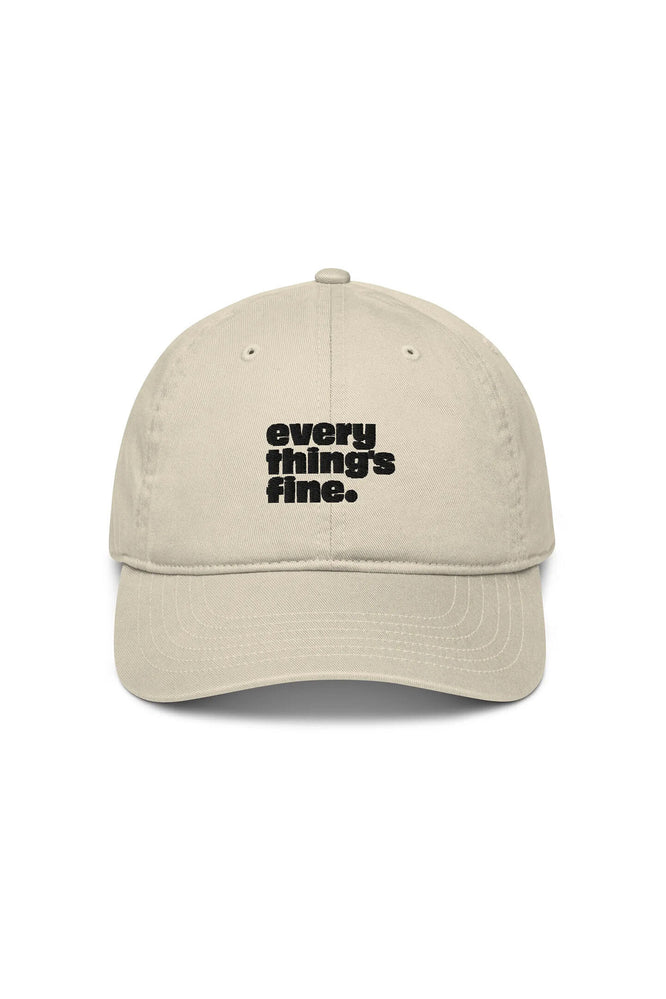Everyone take a deep breath: I’m about to critique Taylor Swift. It seems unfathomable that discussing opinions on the curly-haired country girl from Reading, Pennsylvania, would become the most polarizing pop-culture subject of our era, and yet here we are. Speaking anything but positivity about Taylor Swift has become grounds for dismissal in certain friend groups and cause for doxxing of entertainment industry professionals whose job it is to conceptualize the world we live in. If people do critique Swift, they also must qualify that she is a talented, hall-of-fame, girl-power powerhouse deserving of romantic love no matter how many relationships she torches after the fact.
The latter assertion (that Taylor Swift is the celebrity authority on girlhood in the modern era) and that her music (no matter how clandestine or vengeful) always works to serve that purpose deserves to be challenged — not despite her all-powerful presence in the music industry, but because of it. The most famous writer in history, William Shakespeare (whom many ironically or otherwise have deemed Taylor’s predecessor), once wrote, “Some are born great, some achieve greatness, and some have greatness thrust upon them.” In TSwift’s case, I’d argue that she has intentionally achieved her proximity to girl power, rather than having feminists’ ambitions thrust upon her. And what is the critically acclaimed artist who famously advised young women to overcome those who want to take credit for their fame by focusing on “the work” teaching them in hers? About being a girl, and a woman, in a cruel world admittedly filled with poorly intentioned men? The answer, for some, is that Taylor Swift is weaponizing girlhood.
Taylor Swift’s Famous Friends
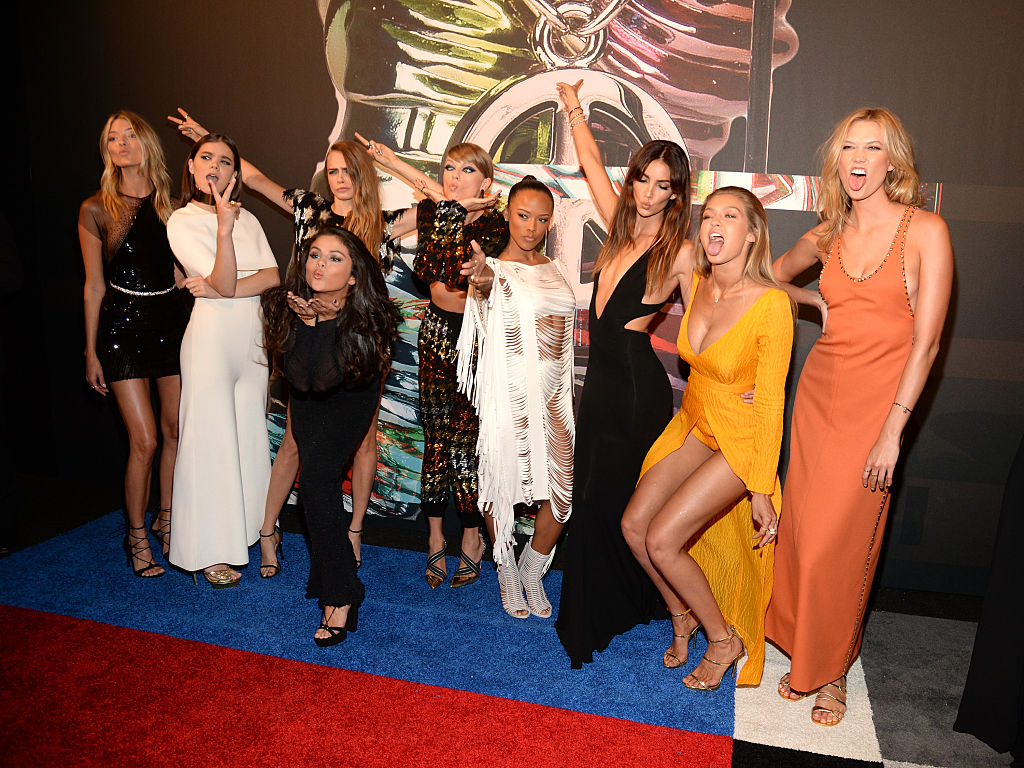
It’s obvious that Taylor, willingly or otherwise, became a perpetual pop culture lightning rod during the 2009 VMAs but I don’t actually think that’s when she was flower-crowned a feminist kween by the masses. In 2016, she hosted a July Fourth party with enough famous thin white girls to fill the front row at Fashion Week. It quickly became known that being a coveted member of Taylor’s girl gang paid in celebrity dividends and cost staying in line, for fear of being publicly exiled from “Taymerica.” She began her tradition of bringing outrageous tour guests from Serena Williams to Julia Roberts on stage. Any girls’ girl worth her salt has been invited on stage, to appear in a video, or have a highly-publicized dinner in the city.
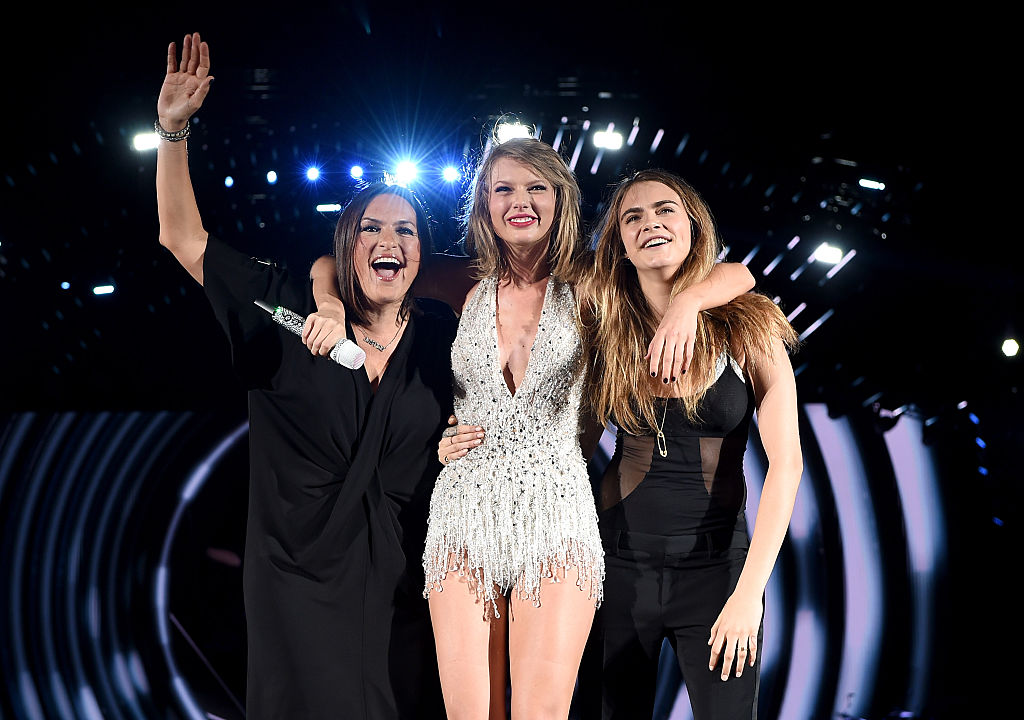
While having an unmanageable amount of documented girlfriends isn’t inherently feminist or anti-feminist, Taylor’s bachelorette-esque commodification of picture-perfect sisterhood infiltrated the media with alarming fervor, showcasing this shiny new female friendship, which apparently hinges on holding hands while hating men or cheering them on, depending on the season. Yet for all the attention Taylor garners for being a professional bestie, how many songs has she written about the legion of inspiring women she’s amassed in her arsenal? Even her fans ponder which banger works best as a BFF tribute and, for the most part, agree you can make “Long Live” or “Dorthea” work with a little mental gymnastics.
The Swiftie Hivemind
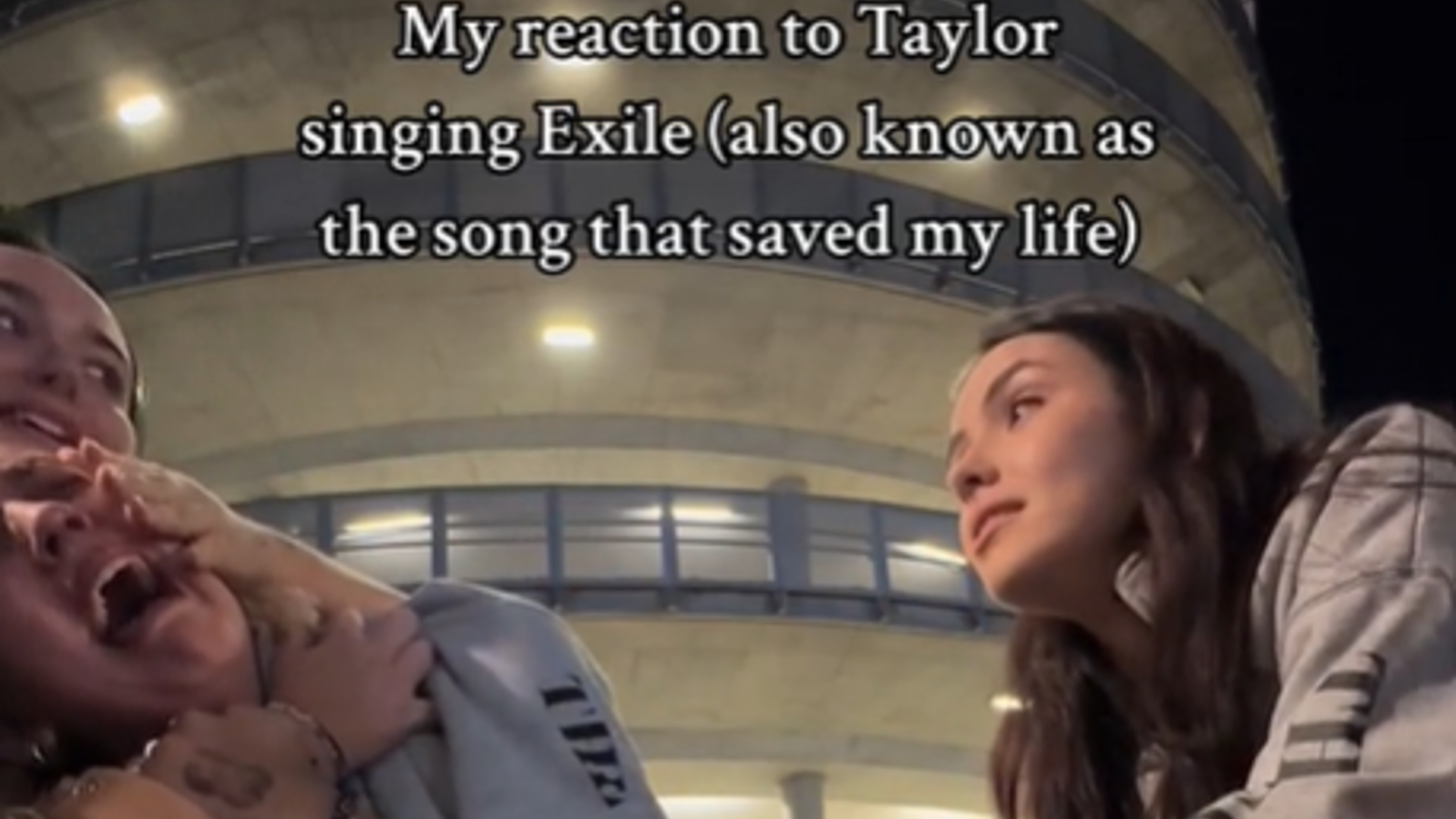
No one can place the parasocial hysterics of stan culture squarely on any one artist’s shoulders, though Donald Glover tried. But Swift is one of a few mega-celebrities bold enough to effectively encourage the online harassment of journalists and TV writers, other singers understood to be her rivals, ex-boyfriends, ex-friends, and entire media corporations that dare refer to her with anything other than reverence after paying her millions of dollars to perform a service. These incidents are like a virtual slumber party, where Swift reigns as the Regina George, never demanding but presumably always pleased by her loyal Gretchens and Karens coming for her latest opponent online. For a large portion of her fan base, anything Taylor says, or is rumored to have said, is as good as gospel. Swift is not their metaphorical God, she’s their allegorical Mother God, not quite breaking her back to convince fans of her supernatural might yet pulling it off nonetheless with the help of a few male peons. So this conundrum goes beyond weaponizing a platform of millions: What is Swiftie Nation’s army being fed when they’re resting between battles in the trenches?
Juvenile Songs With Adult Consequences
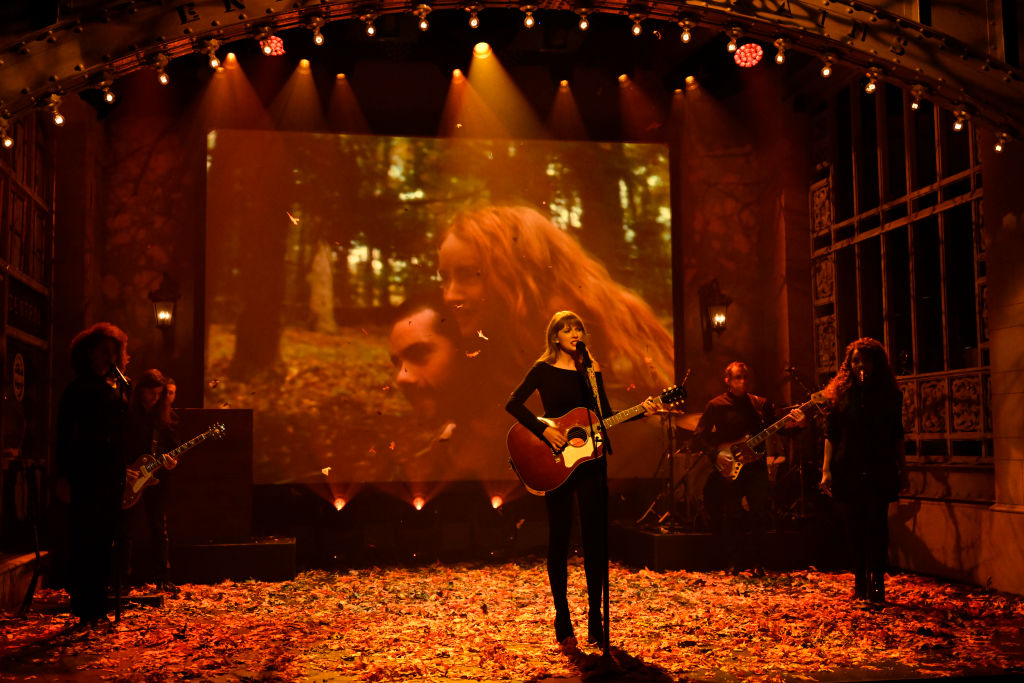
When I was 16 and learned “Dear John” was (allegedly) about John Mayer, I thought it was ballsy to call out a famous older man by name. Looking back years later, I realized that before I knew, and before fans knew, Taylor Swift knew exactly what she was doing with crafting lore behind each love song. It wasn’t just getting even with her exes — it was getting off on destroying them. According to heavy-handed clues unpacked by the internet, Taylor Swift has written about: Jake Gyllenhaal, Joe Jonas, Harry Styles, Camilla Belle, Karlie Kloss, John Mayer, Kanye West, Kim Kardashian, Taylor Lautner, Conor Kennedy, Katy Perry, Calvin Harris, Tom Hiddleston, Scooter Braun, Joe Alwyn, Emma Stone, Travis Kelce and Matty Healy. That’s more than a laundry list of past lovers and friends, that’s enough names to start a small country, primarily made up of people who have purportedly hurt a young girl’s feelings so badly that they merited a public lambasting, frequently across several albums, several years apart.
Swifties often quote an interview in which Taylor lamented how part of being a woman is understanding that you’re damned if you do and damned if you don’t. I’m curious where the times Taylor didn’t take a lyrical swing at someone who fell short of her expectations could have fit in. TikTok has popularized the mantra that men shouldn’t do bad things if they don’t want us to talk about them, which I mostly agree with. At what point does the talking become less about empowerment and more about reputation extortion? With the level of easter eggs, pointed Instagram likes, pre-planned papz photoshoots, and general plotting, it’s easy to envision Taylor Swift in a castle littered with scented candles and red lipsticks, writing out demands with a feather quill dipped in ink: publicly apologize to me and maybe you’ll get a make-up song. If you’re lucky it’ll be your last. Taylor’s MO has conflated having a broken heart with the musical version of breaking the kneecaps of enemies who cross her. She’s Al Capone and her minions are the mob. The lyrics practically write themselves.
Her Latest Tortured Release
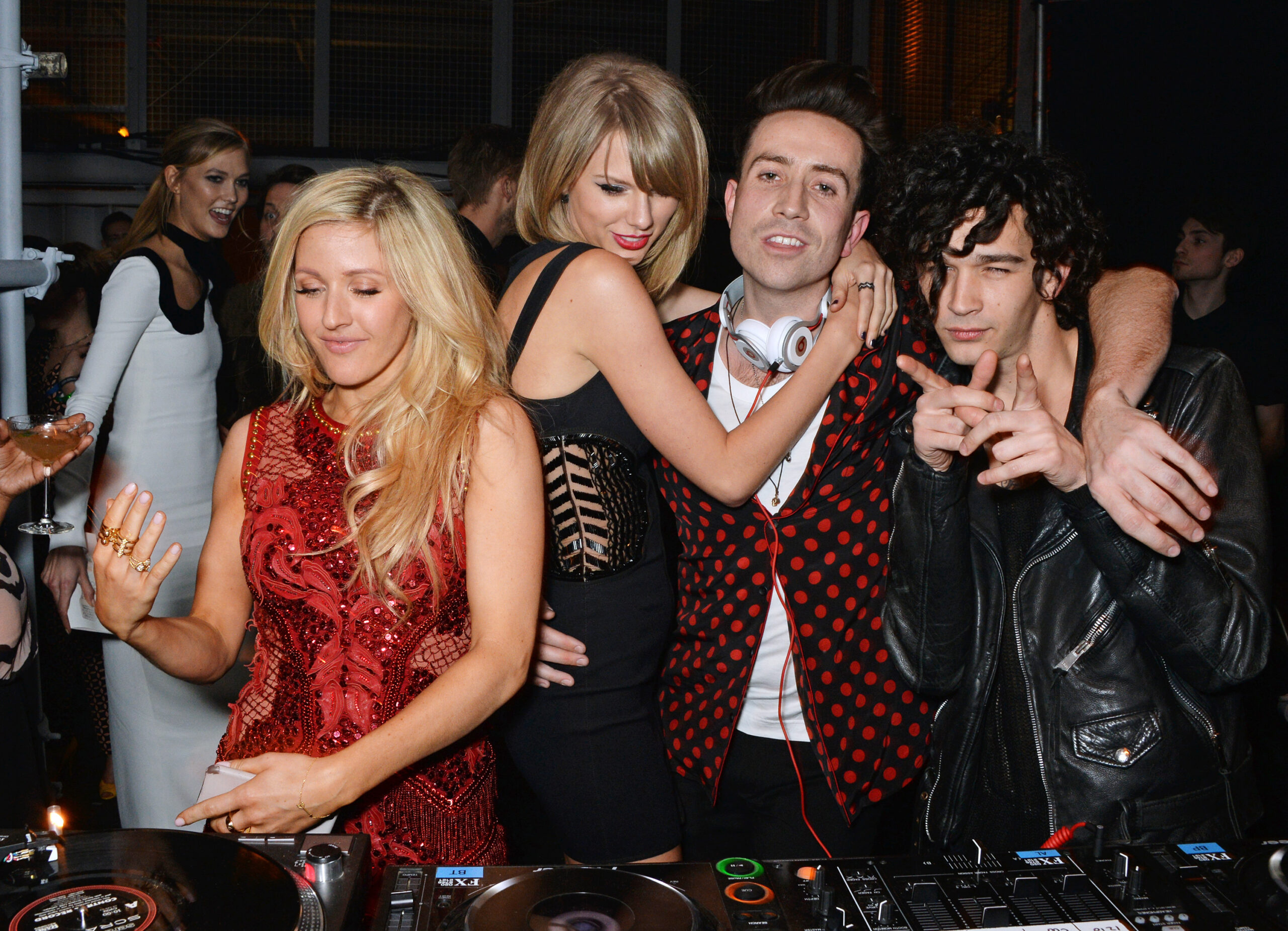
This recent 31-track drop is no different, in that it has invited fans to Da Vinci code her love life through Greek mythology, fictional recurring Victorian characters, and shoutouts to her NFL beau whom I’m sure hopes to remain on her good side. But is Tortured Poets for the girls? If the girls like ruminating on a months-long situationship with the angst of someone getting out of their first-ever relationship, yes. If the girls happen to like Olivia Rodrigo in her own right, as opposed to as an unwelcomed prodigy of Swift’s, then no. I was as shook as the rest of the world when Snakegate happened, mildly intrigued by Taylor’s rebuttal years later, and wholly disinterested in her continued feud now, with a woman over a man she’s no longer married to.
Having a problem with individual women isn’t anti-girl power. But failing to explore female empowerment outside of how it relates to men leaves Taylor’s version of girlhood extremely shallow. The brief moment when Taylor’s non-intersectional feminism was criticized, was quickly washed away by her Lover era thanks to tracks like “You Need to Calm Down” which will forever remind me of a mutual calling racism “so lame.” Taylor told fans to vote for a Democrat, so the nationalism galvanized in extremist circles by her whiteness and associated with her second-to-last fling was all but forgotten. Nothing sticks to Taylor Swift because she’s done an excellent job of taking Chaka Khan’s iconic song “I’m Every Woman” literally. To dislike, break up with or piss off Taylor Swift can no longer be a personal choice — it’s a feminist issue. When being honored as Time’s Person of the Year, Taylor said the patriarchy’s commercialization of “feminine ideas” was “extremely heartening” for the female future. Maybe that’s true, for millionaires collecting the checks. Perhaps Taylor Swift’s version of true girlhood is reserved for summer barbecues with her girlfriends because otherwise I simply haven’t seen it.



















